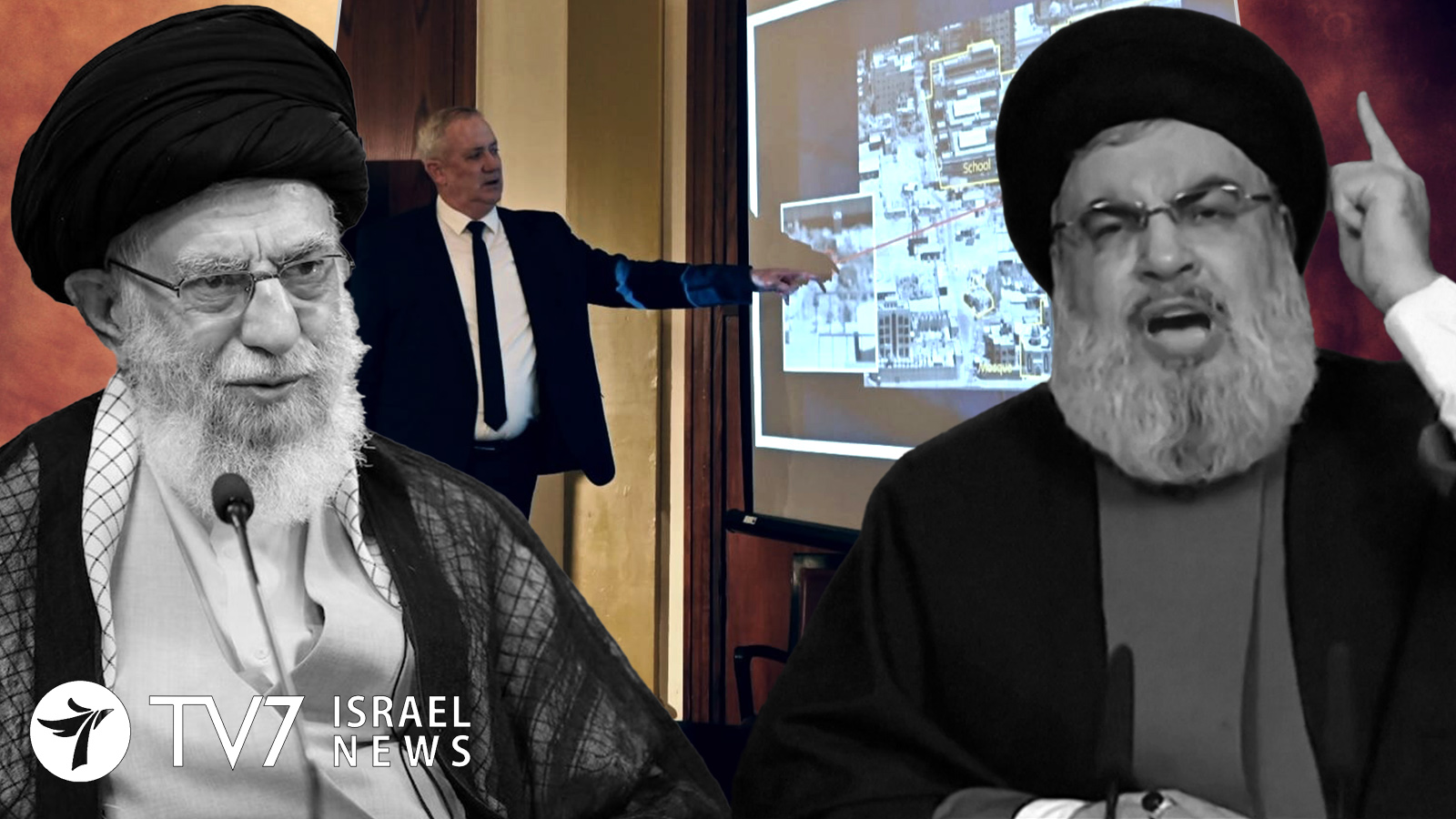Israeli Defense Minister Benny Gantz gave a strategic overview of regional security challenges, reviewed the Gaza campaign and outlined steps going forward and also discussed current political developments during a briefing of members of the Foreign Press Association.
“Lebanon is a major security challenge,” said Gantz, pointing out that, “Iran is supporting proxies and militias in Syria and arming Hezbollah in Lebanon, including with precision missiles.”
According to a statement TV7 obtained from the Israeli Ministry of Defense (IMoD), Gantz said Lebanon “has some 100,000 missiles embedded within its own civilian population and aimed at ours.”
Saying “It has been a quiet 15 years from Lebanon – and I suggest it stays that way,” the top defense chief warned that if necessary, Israel “will exercise our operational superiority – we have the means to respond if that becomes necessary to protect our citizens.”
Referring to the Second Lebanon War with the Iran-backed group, Gantz said that the IDF now has “far greater intelligence vis-à-vis Hezbollah than we did in 2006 and are going to be by far more effective than we were then. I suggest that Lebanon not test us. I hope they won’t because it would take them back years.” Stating “full confidence that Hezbollah would take a serious hit were a threat to our country escalate there,” Gantz cautioned that, “there would also be damage to Lebanon – because the autonomous State of Lebanon must be held responsible for any activity on its soil.”
Discussing the Islamic Republic’s subversive role in the region, Gantz stressed that “Iran is global problem, a regional problem, and, finally, an Israeli problem.”
With regard to the ongoing Vienna Talks aimed at returning both Iran and the United States into full compliance with the 2015 Joint Comprehensive (JCPOA) nuclear deal, the Minister Gantz said, “We support an agreement that will include effective monitoring and halt Iran’s subversive and destabilizing attempts to disseminate arms to its proxies throughout the region,” while underscoring that, “Given the gravity of the threat we face, Israel will take whatever measures are necessary to protect itself and is prepared for any scenario that may arise.”
After reiterating that the “JCPOA is not a good deal,” he said, “As it is currently being reengineered, a lot can be done, and I hope that it will be done, to make it more effective.
Turning to last month’s Operation Guardian of the Walls, Gantz used a slide presentation to reveal Hamas launching sites embedded within civilian populations, and shared details of Israel’s tactics of precision strikes in Gaza.
“Israel was pushed into a war it was not interested in, Hamas cynically used the tension in Jerusalem to position itself politically vis-a-vis the Palestinian Authority ahead of elections,” said the former IDF Chief of Staff, adding, “Like any other country, we couldn’t allow our sovereignty to be violated. We couldn’t allow rocket fire into our capital. Hamas didn’t anticipate our reaction, nor did it anticipate the results.”
“We achieved all of our goals: mainly to neutralize terror threats, while inflicting damage on Hamas’ capacity within Gaza. It was a very complicated campaign, because Gaza is a densely populated area. They aim for civilians from within civilian populations. We don’t have the luxury of doing nothing. It is a moral duty to our citizens,” he said.
Underscoring that his “position in contending with threats has always been to act with military strength and moral superiority,” Lt. Gen. (res) Gantz insisted, that, “Going forward the basic equation must change. We will not accept any breaches of our sovereignty. Retaliations will come at the right time. We cannot return to the previous reality, and this campaign was designed to change it.”
While stressing Israel’s commitment to “the humanitarian rehabilitation of Gaza,” Gantz went on to stress that the return of “MIA soldiers and civilian hostages is also a humanitarian matter.”
“We also need to see reciprocity and desire on the part of the Palestinians to choose a path away from violence and toward resolution,” said Gantz, who is also Israel’s Justice Minister, adding that, “We view the Palestinian Authority as a preferable and more moderate partner and are interested in seeing it strengthened in Gaza as well…The only way forward is to engage directly with one another. We should be able to see relations develop and with relations and engagement and increased governance, change is possible.”
As far as the imminent possibility of joining a national unity government, Gantz – who leads the centrist Blue and White party, said he believed the diverse coalition “can be sustainable because there are mutual interests at play and they may give this government a chance. We will have to work with the things we agree upon and figure out how to handle the ones that we don’t.”
“I think it is time for change, and I think that this hope for change will be the fuel that keeps the government running. We should be able to cooperate with everyone in government – on the full spectrum from left to right,” he said, emphasizing that, “We must find the way to bridge the gaps that divide us. As we’ve seen over these past weeks, there is a real danger in letting rifts go unhealed. I think Israeli society understands this.”
